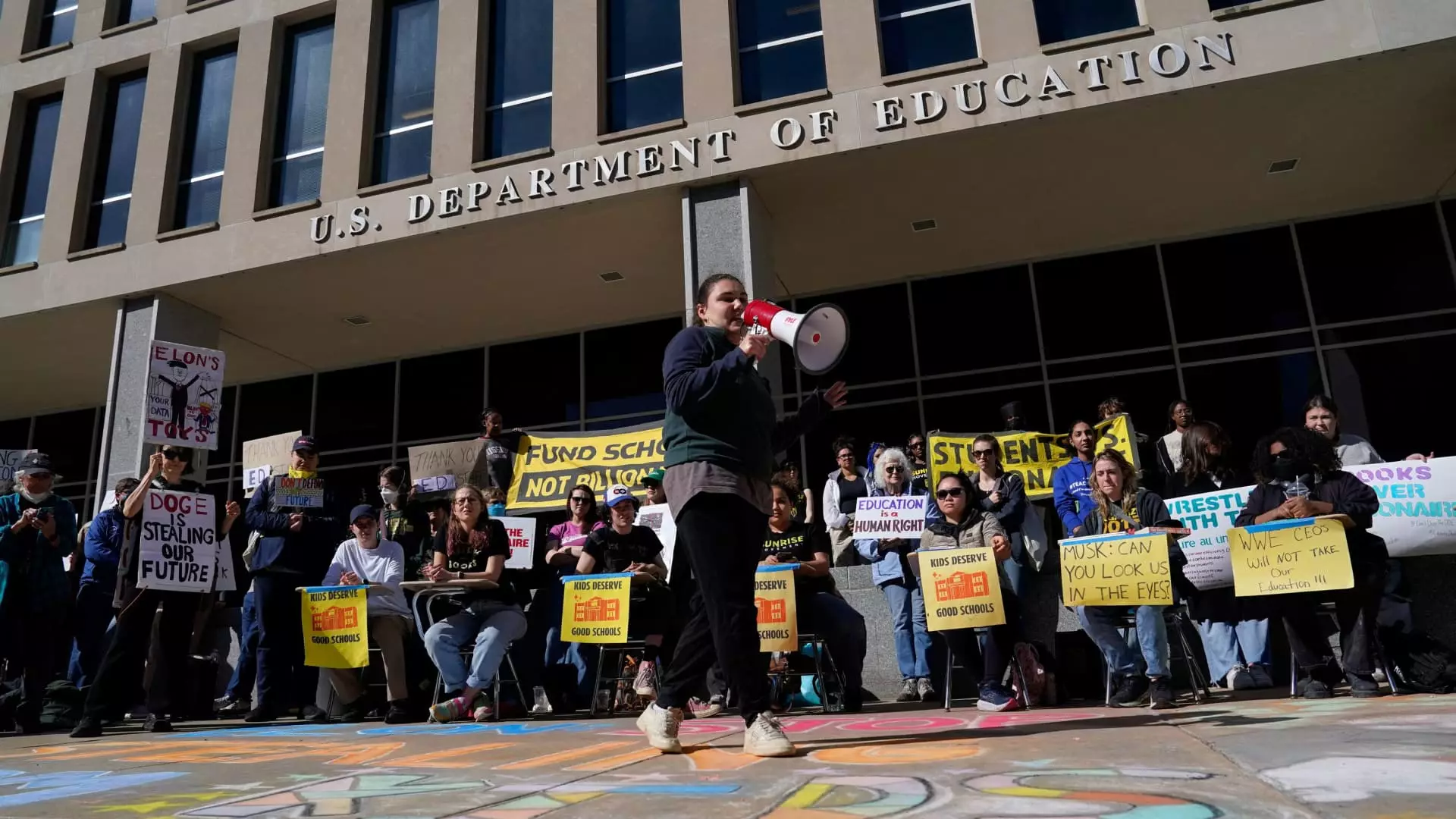The recent maneuvers by the Trump administration to strip the education system of essential personnel highlight a grave misjudgment masquerading as policy reform. As the Supreme Court considers an appeal to overturn a court order that seeks to reinstate over 1,300 dismissed U.S. Department of Education employees, the implications of this decision expand far beyond administrative reshuffling; they cast a long shadow over the future of education equity in the United States.
The core argument presented by Solicitor General D. John Sauer—that the cuts are necessary for “streamlining” and eliminating “discretionary functions”—holds distressing ramifications. It presumes that empowering state governments with full control over educational policy will yield better outcomes, a notion that ignores decades of research underscoring the importance of federal oversight, especially in safeguarding civil rights education.
Economic and Social Consequences
The ramifications of these staffing cuts are immediate and profound. According to Judge Myong Joun’s preliminary injunction, the closure of seven out of twelve offices devoted to civil rights enforcement signals an outright abandonment of protections for vulnerable groups. These offices have historically played a critical role in addressing discrimination based on race, disability, and other identities. In an era where racial tensions and inequalities are at a peak, such actions reflect a disturbing willful ignorance.
The elimination of the team overseeing the Free Application for Federal Student Aid (FAFSA) is equally alarming. With approximately 17 million families reliant on this application process for college funding, the decision to cut support directly undermines access to education for low-income students. The path to higher education, already fraught with economic barriers, has just been made even more treacherous. What kind of society do we aspire to be if our future generations cannot access the opportunities that education provides?
Historical Context and Political Gamesmanship
This battle to dismantle the Department of Education isn’t new; it reflects a decades-long trend towards undermining public governmental functions. Under former President Reagan, there was a call for abolishing the Department entirely. Yet, that desire found resistance once citizens recognized the value of a centralized, cohesive educational policy. The Trump administration’s decision, however, highlights a political game grounded more in ideology than in the well-being of its citizens.
Opposition from various parties, including 21 states and the American Federation of Teachers, exemplifies a rare unification across the political spectrum, driven by the shared understanding of the stakes involved. What we see is a collective outcry against a dangerous proposal that not only threatens the architecture of public education but also jeopardizes the very fabric of society itself.
It’s time to confront the underlying motivations for these drastic cuts, as they reflect a troubling aversion to equitable education. The effort to sidestep Congress underestimates the democratic processes that protect our educational values. As we look forward, it’s essential that we advocate for a more inclusive and supportive educational framework rather than allowing the machinery of democracy to be dismantled for expediency. Keep in mind: Education is a right, not a privilege, and any effort to undermine it deserves fervent opposition.

